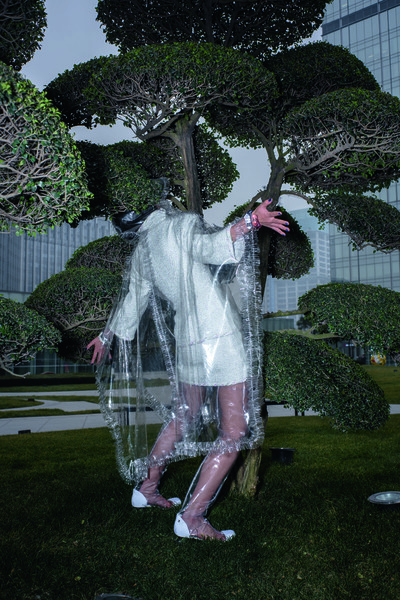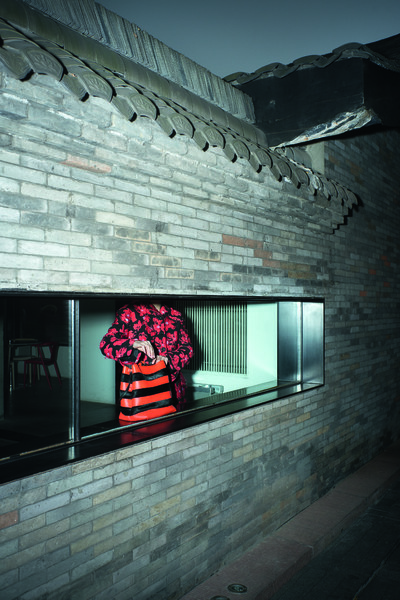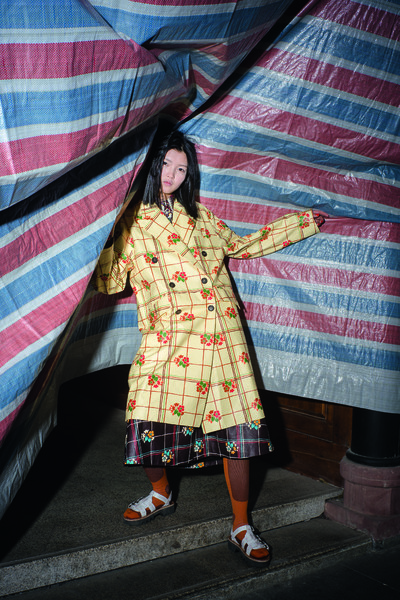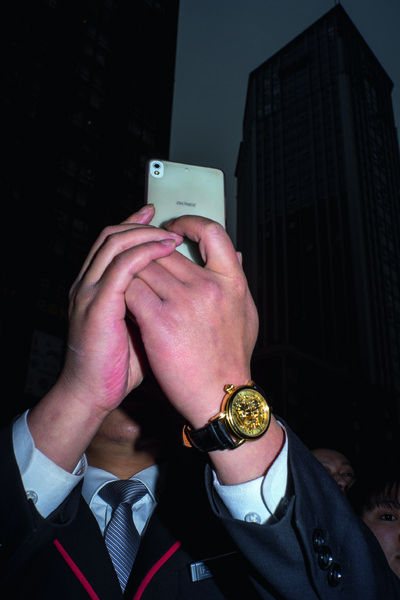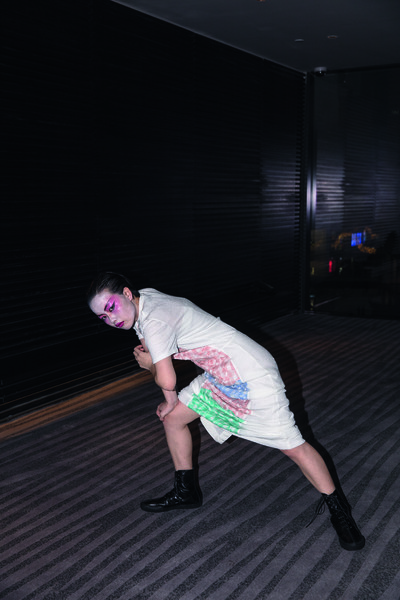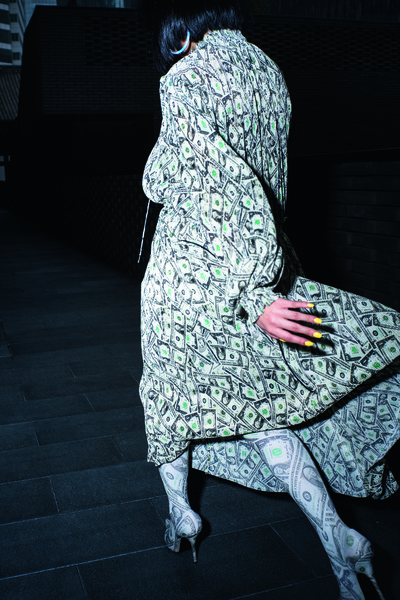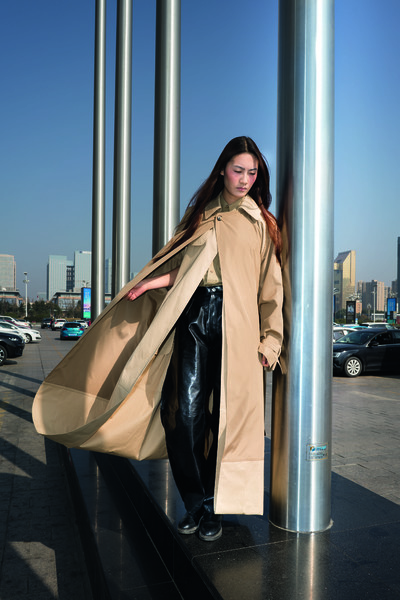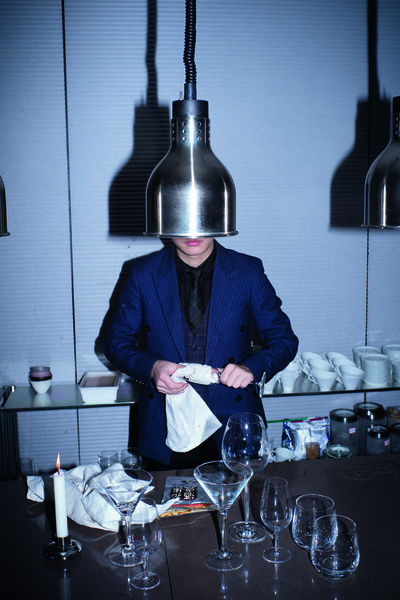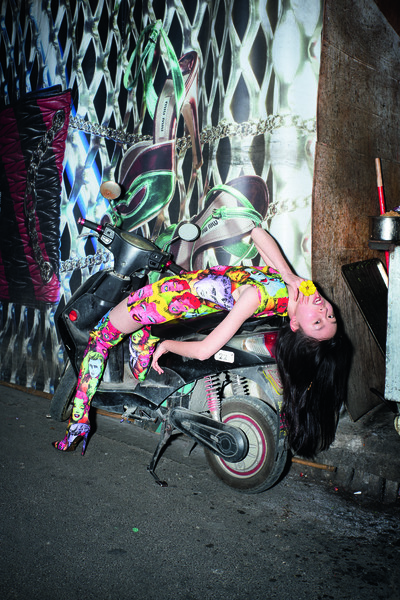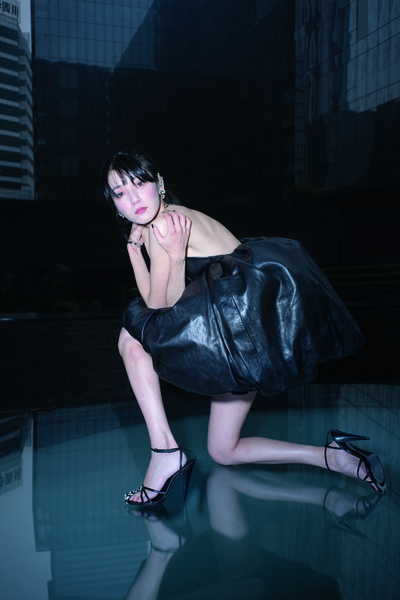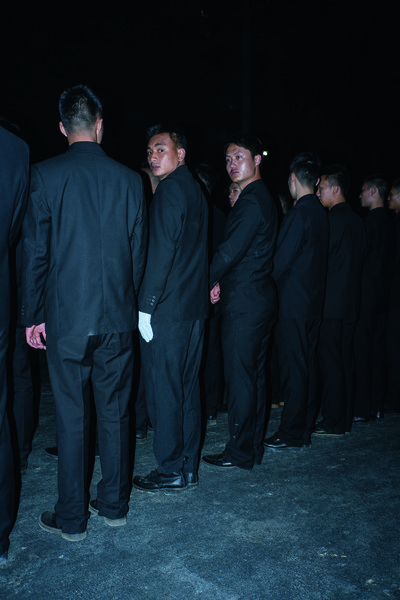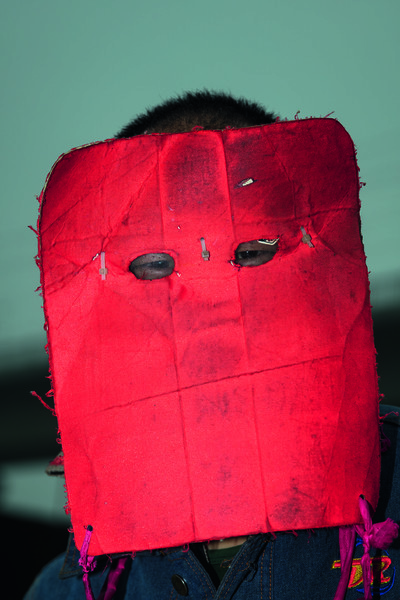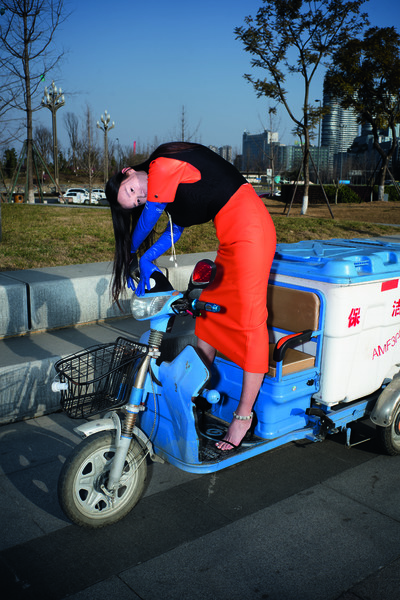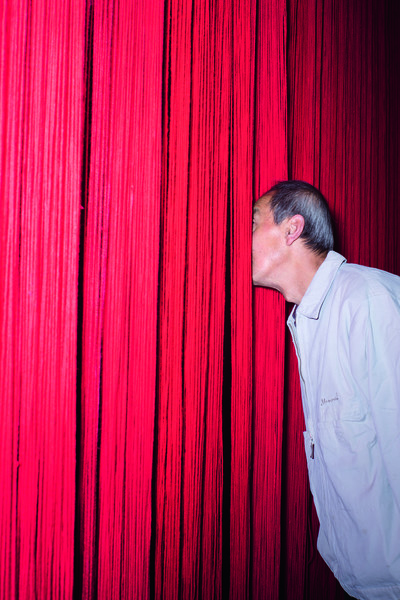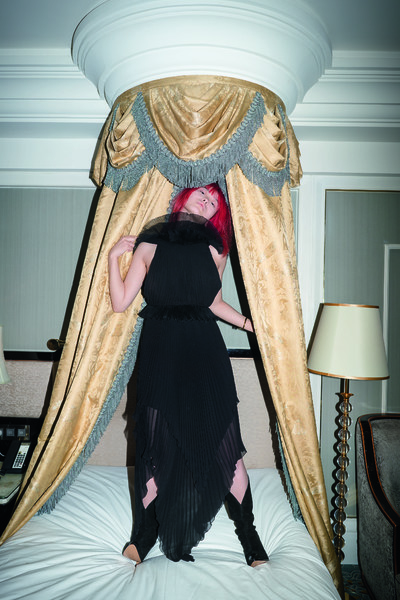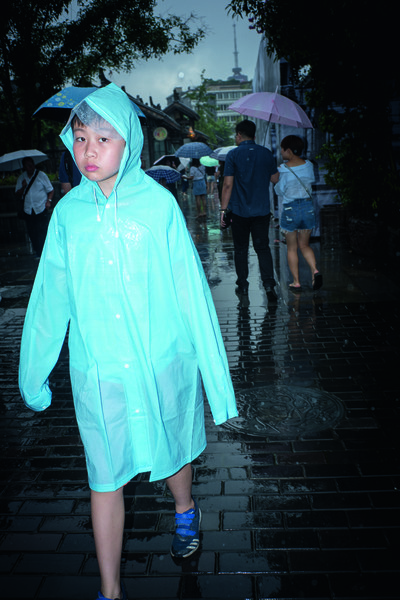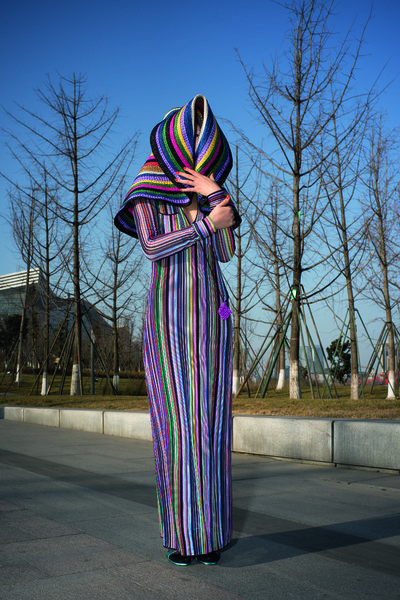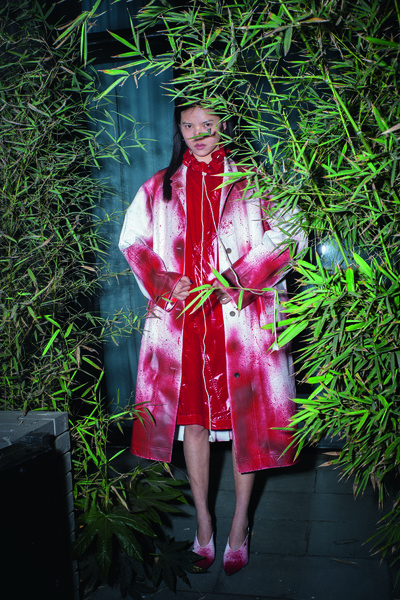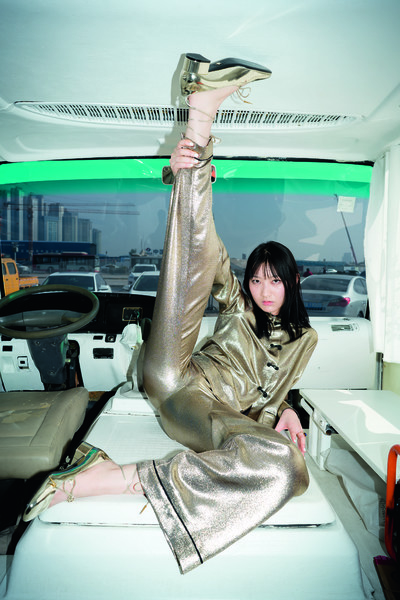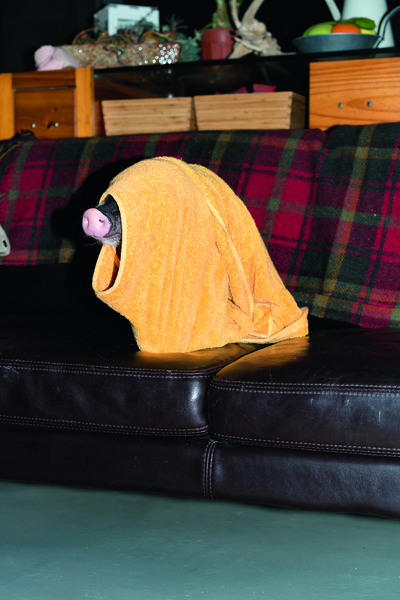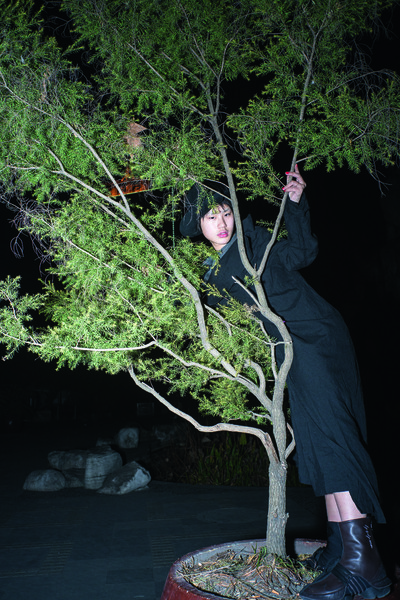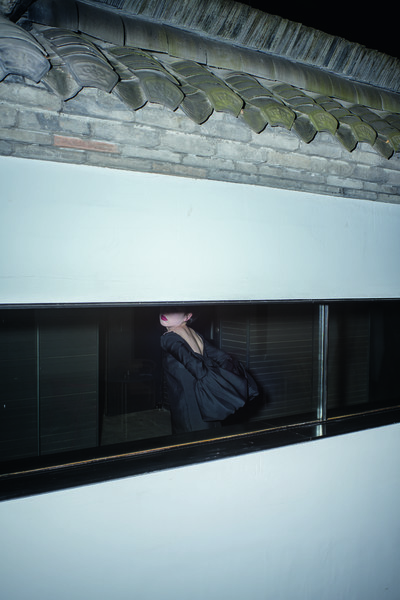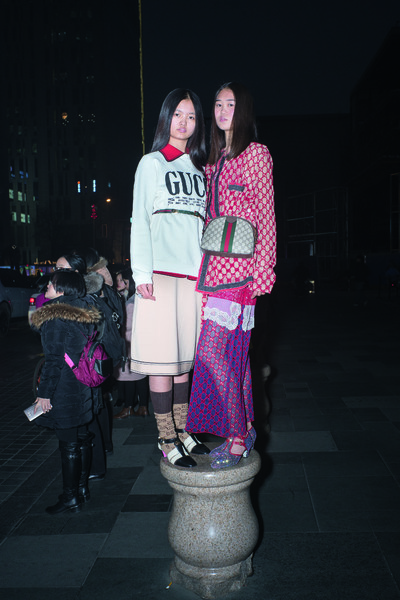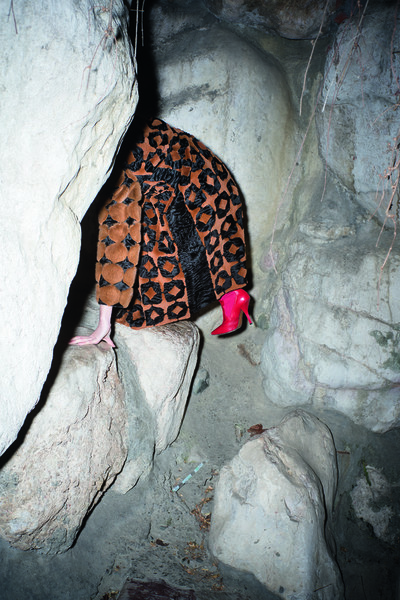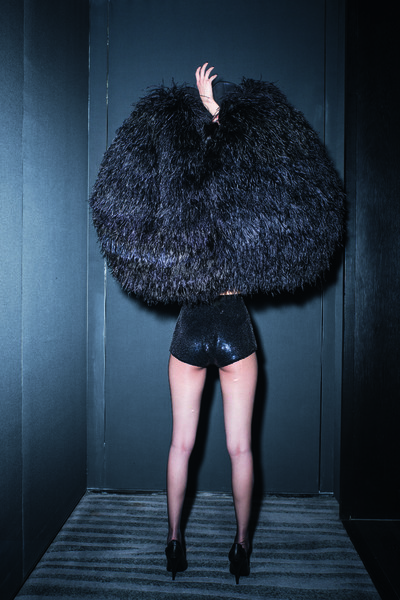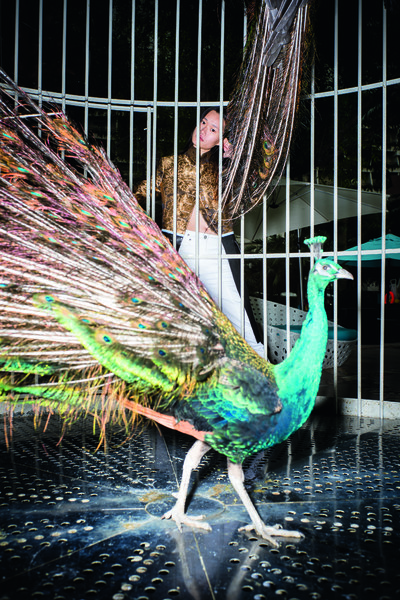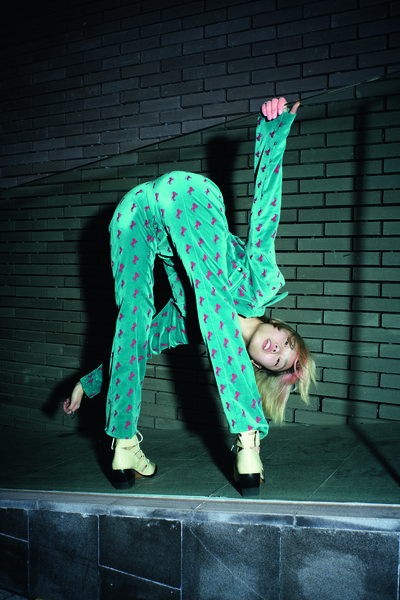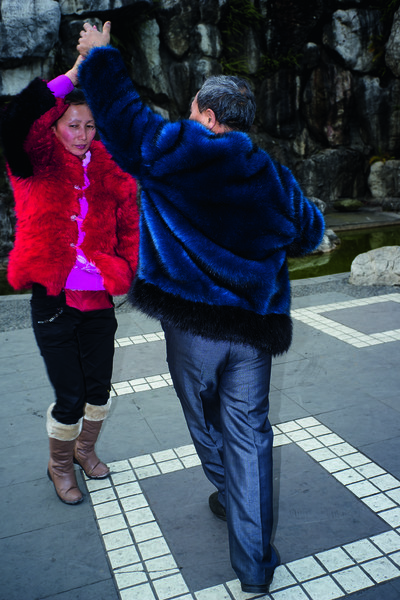Welcome to China’s new luxury playground.
By Hung Huang
Photographs by Feng Li
Styling by Vanessa Reid
Welcome to China’s new luxury playground.
His name is Deng Hong. Deng is the family name, like Deng Xiaoping, also a man from Sichuan province, of which Chengdu is the provincial capital. In 2011, Deng Hong wanted to invite Lady Gaga to do a concert in Chengdu. Despite my protests, a mutual friend convinced him that I was the person who could bring her to Chengdu. I was instantly given a first-class ticket to fly to the central Chinese city and when I arrived, a peach-coloured Rolls was waiting for me at the VIP exit.
I arrived at one of Deng Hong’s properties, an InterContinental Hotel, where he was waiting for me in the lobby. A middle-aged man with a crew cut, he was dressed in a peculiarly chic yet local gangster style: short-sleeved summer shirt over a long-sleeved T-shirt, Nike sneakers, and a pair of nondescript dark grey dress pants.
He immediately escorted me to a dining room, explaining on the way that tonight was his corporate New Year gala, the Chinese equivalent of the annual office Christmas party, yet nothing like a Christmas party. His whole family was at the dining room table, his son who had been at public school in the UK had just been shipped back to Chengdu and given a street stand selling local kebabs.
‘I want him to know how to survive in the streets of Chengdu,’ Deng said in a booming, proud voice. ‘Show aunty your hands,’ he commanded his son. The boy, who was about 18, showed me his hands covered with scars and scratches.
‘From preparing chuan chuan, on the street?’ I asked.
‘Yes, and I was burned by burning oil once.’
He rolled up his sleeves and showed me a horrible scar on his forearm. Then he quickly buttoned his shirt sleeve and withdrew his hands. His voice lacked the pride that filled his father’s voice. The entire table gasped about the scars and roughness of the young man’s brutalized hands. The more everyone pleaded with the father to let his son work at a normal job, like in an investment bank, the more determined Deng became about keeping his son on the front line of street food in Chengdu.
Eating is a big thing in Chengdu. Chuan chuan are Chengdu kebabs: meat, vegetables or a rich type of tofu on a skewer. A boiling pot of oil is placed on low tables on street kerbs, diners sit on small stools with a garbage pail for the skewers between their legs, looking as if they are preparing to throw up. The skewers of meat, vegetables or whatever are cooked in the boiling oil, dipped in a spicy sauce and eaten. Chuan chuan are the most popular street food of Chengdu. I hate them.
The dinner was finished in a hurry and we were rushed to the gala, which was held in the hotel’s largest ballroom. Inside were close to a thousand of Deng Hong’s employees waiting for him. When he entered, they all stood up and cheered, as if he were a rock star.
The gala evening was a mishmash of singing, dancing, and short skits performed by different departments in Deng Hong’s real-estate empire. There were several Lady Gaga ‘Poker Face’ performances, a lot of local pop-star tribute acts and quite a few K-pop performances. Aside from lasting three and half hours, the amateur performers were not all that bad. When it finally ended at 11pm, I was extremely relieved. But as I tried to leave, one of Deng Hong’s assistants gestured me to sit down.
To my surprise, Deng Hong got on stage, still dressed in his gangster-chic outfit. He took over the mic and started to give a commentary on the first performance. As he spoke, a man quietly carried two large hemp sacks onto the stage next to him. ‘Your performance tonight is like your work: it’s alright, but not very exciting; there is no detail and no innovation,’ said Deng. ‘For that I will give your department 150,000 yuan’ – about $20,000 – ‘as your year-end bonus!’
Applause! Applause!
Then to my astonishment, Deng reached into the sack and threw a thick wad of cash towards the head of the department he had just critiqued. The man was standing not far away and managed to catch every bundle of red 100-yuan wads without dropping one. The same routine went on for about two hours; the audience, Deng’s employees, remained highly excited as cash flew around the room. This is how year-end bonuses were distributed in Chengdu.
‘People from Chengdu have a different relationship to money than people in the rest of China: they have more fun making it, spending it and even losing it.’
People from Chengdu have a different relationship to money than people in the rest of China: they have more fun making it, spending it and even losing it. It is a city with its
own sense of joie de vivre. I was told that serious business in Chengdu was conducted in teahouses and at mah-jong tables, not in boardrooms. Before the Internet age, Chinese employees had to sign a pay slip when receiving their monthly salaries, and it is said that in Chengdu, the personnel department would need to chase down employees in tea houses to sign the pay slip every month.
In Chengdu, we like to live a little, but I work a lot because my work is play,’ Deng told me, while showing me his properties around Chengdu. ‘Look at this,’ he said, pointing to the almost finished New Century Global Center, a truly huge complex of nine floors of restaurants, shops, an indoor water park, ice rink, nursery schools, spas and beauty salons. Above this massive commercial complex sat a hotel, offices and residential units.
It was a Chengdu gangster interpretation of Le Corbusier’s Unité d’Habitation and it was Deng’s vision of the city he
wanted to build. Like many visionaries before him, he had no formal education in architecture. When he was young, he studied classical Chinese paintings. Later, he managed to get a US green card and started a business organizing trade shows. Eventually, he returned to Chengdu and became the city government’s favourite private entrepreneur. He was invited to construct the buildings for trade shows, and then organize them. He owned multiple concert halls and stadiums, each surrounded by commercial and residential properties that allowed him to become one of the richest men in
Sichuan.
When I met him, he was about to sign a contract with the late Zaha Hadid for yet another exhibition and performance centre in Chengdu. He showed me his drawing of the building and told me, ‘I showed this to Zaha, and she said, “Why do you need me? You can design it yourself already”.’
‘Why do you need her?’ I asked.
‘I know how to pour concrete, too,’ Deng replied, ‘but it doesn’t mean I have to do it myself.’
Despite his hospitality and my eye-opening experience, my trip to Chengdu proved fruitless; I had to inform the gangster tycoon that I couldn’t bring Lady Gaga to sing for him.
Right after I left the city, my friend told me that Deng Hong was buying a string of islands in the Pacific Ocean. He had great plans to make them a holiday paradise for the new Chinese middle class. Unfortunately, the next news I heard about Deng Hong was his arrest as part of a massive corruption scandal.
Fast-forward to late 2017 and Chengdu has changed. No longer in its gangster-tycoon phase, it has become the target all luxury companies want to hit in China. Because, despite not being the richest city and only the eighth most populous, Chengdu is the third biggest luxury market in China, only just behind Shanghai and Beijing. Indeed, in some categories, like cosmetics, Chengdu has become the best-selling city in the country.
And the reason is the young: Chengdu has become the de facto youth-culture epicentre of China: what Chengdu wants, Chinese millennials want. Honour of Kings – a mobile game so popular among the young in China that its owner Tencent felt obliged to limit access to children to one or two hours a day – was created in the city. It is home to a hugely successful pop culture. Chris Lee, pop star and the face of Gucci and L’Oréal in China, is from Chengdu, as is the current hottest reality-show-winning hip-hop band. When one member of TFBoys, the most popular boy band in China, decided to celebrate his birthday, he chose a 20,000-seat stadium in Chengdu – and filled it.
So it should come as no surprise that Chanel chose Chengdu for its first luxury runway show in China. The turnout was fantastic, and most importantly for the fashion industry, those attending were not representatives of old money. The audience was all young and it was dripping in Chanel. Chengdu had never looked so smart.
